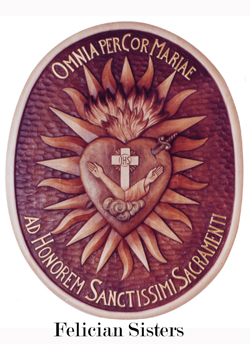|
DR. TED RADZILOWSKI, JANUARY 1, 2007
Like a naturalist filming species in its native habitat, nowhere is there a better location to interview Dr. Thaddeus (Ted) Radzilowski than in his warm, comfortable office at the Piast Institute on Caniff in Hamtramck.
The profusion of books, me mementos and awards should in no way fool you into thinking that the Piast Institute is rolling in dough, however—supported largely by benefactors and funds from the private stash of members like Dr. Ted, the Piast Institute is a non-profit, independent organization whose mission is, among other equally compelling goals, to serve as a think tank and data resource center for Polonia meant to develop policy papers and historical, cultural, political, economic, social, and demographic studies on Polish and Polish-American topics.
‘Our Polish Story’ would hardly be complete without a profile of the deeply committed, supremely intellectual Dr. Ted, whose journey from the side streets of Hamtramck to the pinnacle of academia (a PhD in history, eight years as president of Orchard Lake St. Mary’s, numerous Washington boards, etc.). He still speaks with profound nostalgia about the sacrifices made by the generation above him, including his parents (his father’s thirty-five years at US Rubber culminated in a form of cancer 100% higher in rubber workers, whose pension was lost in a bureaucratic snafu, and whose widowed mother was forced to subsist on social security as a result).
“The sacrifices these folks made—all of them, I mean, riding the Russell Street bus at five AM, going to jobs they didn’t particularly like, where they were mostly despised and treated without dignity… it’s tragic. But in doing so, they created a financial infrastructure…paycheck by paycheck…which allowed us to succeed.”
Radzilowski’s compassion for his fellow man began early, when at 14 he was forced to find work to help support his family after his father was injured on a second job. As an orderly in a local hospital, he saw the agonies of the injured up close, and developed a lifelong sense of empathy for the suffering of others.
“I’m a tragic optimist,” he says wryly. “As a historian, you have occasionally to put your mind inside the mind of figures from the past to understand their motivations. The truth is, the world is filled with unintended consequences. It’s not a bad place, not even necessarily a sad place. But tragic.”
More on the Piast Institute can be found at: www.piastinstitute.org
|









